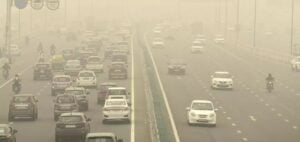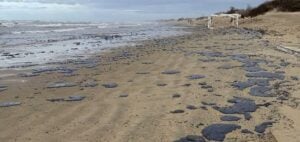Japan, which regularly experiences seismic tremors due to its geographical position on the Pacific Ring of Fire, is facing a particularly tense situation.
The recent magnitude 7.1 earthquake in the south of the archipelago not only injured 14 people, but also led the authorities to activate an alert level unprecedented since the introduction of a new post-2011 system.
The alert is accompanied by a series of precautionary measures and heightened vigilance, particularly in the critical infrastructure sector.
Prime Minister Fumio Kishida, in direct response to this threat, decided to cancel a diplomatic trip to Central Asia, preferring to remain at home to coordinate crisis management efforts.
This cancellation underlines the strategic importance attached to seismic risk management, especially in a country where recent history is a reminder of the scale of potential disasters.
Increased precautions for critical infrastructures
The repercussions of this earthquake are immediately reflected in operational adjustments within critical infrastructures.
High-speed trains, the backbone of intercity transport in Japan, are reducing their speed between Tokyo and Osaka, as a precautionary measure to limit risks in the event of aftershocks.
These modifications, although causing delays, are essential to minimize potential damage to these vital lines.
At the same time, nuclear power plants are receiving strict instructions to evaluate and reinforce their safety systems. Japan’s seismic standards, among the most rigorous in the world, are once again being put to the test.
The incidents of 2011, and in particular the Fukushima disaster, have left an indelible mark on the country’s risk management policy.
Vigilance therefore remains at a maximum, with particular attention paid to the stability and resilience of energy facilities.
Seismological perspectives and economic implications
From a seismological point of view, although precise earthquake prediction remains impossible, the recent earthquake increases the probability of further tremors in the coming days or weeks.
Experts stress, however, that despite this increased probability, the overall risk remains low.
Japan, which averages 1,500 earthquakes a year, is well prepared, both in terms of infrastructure and public awareness.
This situation is not without economic implications.
The energy sector, in particular, must continually adapt to the challenges posed by seismic events.
Power plant operators, like transmission system operators, find themselves under increased pressure to ensure continuity of service without compromising safety.
Reducing speeds on rail lines, while an obvious safety measure, could also have repercussions on logistics and mobility in key urban areas.
The government, for its part, is maintaining a state of vigilance with a long-term perspective.
The 70% probability of a “mega-earthquake” within the next 30 years calls for continuous and rigorous preparation.
Experts agree on the need for companies, particularly in the critical infrastructure sector, to regularly reassess their security protocols.




















